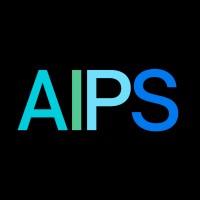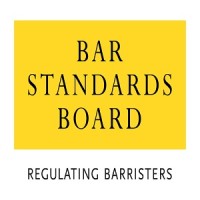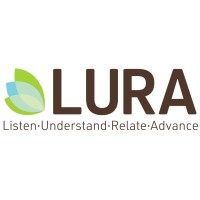Company Details
australian-institute-of-policy-and-science
11
4,184
921
aips.org.au
0
AUS_2733776
In-progress

Australian Institute of Policy and Science Company CyberSecurity Posture
aips.org.auThe Australian Institute of Policy and Science (AIPS) is an independent not-for-profit organisation first established in 1932 that aims to bring science, people and policy, community and industry actors closer together to encourage engagement and informed debate on key current issues in Australia and globally. Science and technology have an important contribution to make to contemporary social, economic, political, security, ethical and cultural issues. Whether it is about climate change, water, renewable energy, nanotechnology, health advancement or food security, over the coming decades many of the challenges facing us will require scientific input into policy making, a scientifically literate community and greater public engagement with science and technology. Today, the Australian Institute of Policy and Science is dedicated to responding to these challenges and to partnering with others in the not-for-profit, community, industry, education, research, government and other sectors to: - Increase public engagement in science and ensure people have a voice in decisions that affect them - Promote excellence in research, innovation and the promotion and communication of science - Inform and influence policy and policy-making through expert comment and input - Invest in a scientifically inpsired, literate and skilled Australia that contributes to local and global challenges
Company Details
australian-institute-of-policy-and-science
11
4,184
921
aips.org.au
0
AUS_2733776
In-progress
Between 700 and 749

 AIPS Global Score (TPRM)
AIPS Global Score (TPRM)XXXX



No incidents recorded for Australian Institute of Policy and Science in 2025.
No incidents recorded for Australian Institute of Policy and Science in 2025.
No incidents recorded for Australian Institute of Policy and Science in 2025.
AIPS cyber incidents detection timeline including parent company and subsidiaries

The Australian Institute of Policy and Science (AIPS) is an independent not-for-profit organisation first established in 1932 that aims to bring science, people and policy, community and industry actors closer together to encourage engagement and informed debate on key current issues in Australia and globally. Science and technology have an important contribution to make to contemporary social, economic, political, security, ethical and cultural issues. Whether it is about climate change, water, renewable energy, nanotechnology, health advancement or food security, over the coming decades many of the challenges facing us will require scientific input into policy making, a scientifically literate community and greater public engagement with science and technology. Today, the Australian Institute of Policy and Science is dedicated to responding to these challenges and to partnering with others in the not-for-profit, community, industry, education, research, government and other sectors to: - Increase public engagement in science and ensure people have a voice in decisions that affect them - Promote excellence in research, innovation and the promotion and communication of science - Inform and influence policy and policy-making through expert comment and input - Invest in a scientifically inpsired, literate and skilled Australia that contributes to local and global challenges


The Bar Standards Board (BSB) regulates barristers and specialised legal services businesses in England and Wales in the public interest. If you wish to communicate with the BSB, please email us at [email protected] or refer to our website https://www.barstandardsboard.org.uk/for-th

As leaders in collaborative community sustainability planning, Lura has partnered with public agencies and their communities to achieve economic, environmental and community prosperity for present and future generations. For over 30 years, we have worked with governments, their partners, stakeholder
The Today’s Students Coalition is a cross-cutting group of policy, advocacy, and membership organizations who have joined forces to push for urgently needed policy changes that will better serve today’s students. The Coalition is forging new consensus across a diverse group of organizations focused

American Oversight is a nonpartisan, nonprofit watchdog that advances truth, accountability, and democracy by enforcing the public’s right to government records. We act where corruption and government power overlap. From the federal Freedom of Information Act to state transparency laws, we use caref

The last German American Conference took place Nov 14-16, 2025 at Harvard University. Stay tuned for updates on this year's edition! The German American Conference (GAC) is the largest transatlantic student-led conference of its kind, providing a unique platform for leaders from academia, business,

The Data Coalition is an initiative of the non-profit Data Foundation. The membership-based initiative facilitates a strong national data community and advocates for responsible policies to make government data high-quality, accessible, and usable. The Data Coalition is an initiative of the non-pr
.png)
Dr Vikram Sharma, founder and CEO of quantum security pioneer QuintessenceLabs and ACS Fellow, has won the government's annual Prime...
Australia honours top scientists, innovators and educators with 2025 PM's Prizes for advances in air quality, quantum cybersecurity,...
PRNewswire/ -- Deakin University, Australia, and Vellore Institute of Technology (VIT), India, are pleased to announce the launch of a new...
Australia's security risks are sharpest where people and technology meet. This is the space where data flows, disinformation spreads and...
Opposition Leader Sussan Ley has unveiled new members of her national security team, with some familiar faces and some new ones across...
Modern diplomacy extends far beyond foreign ministries and ambassadors, as domestic officials, civil society groups, and business leaders...
Emily Mosley is the National Projects & Publications Manager of the Australian Institute of International Affairs (AIIA). She leads national programs,...
ASPI's Cyber, Technology and Security analysts aim to inform and influence policy debates in the Indo-Pacific through our research.
This Asia Policy roundtable examines how four Indo-Pacific countries—India, Indonesia, Japan, and South Korea—fare on three aspects of cyber...

Explore insights on cybersecurity incidents, risk posture, and Rankiteo's assessments.
The official website of Australian Institute of Policy and Science is http://www.aips.org.au/.
According to Rankiteo, Australian Institute of Policy and Science’s AI-generated cybersecurity score is 742, reflecting their Moderate security posture.
According to Rankiteo, Australian Institute of Policy and Science currently holds 0 security badges, indicating that no recognized compliance certifications are currently verified for the organization.
According to Rankiteo, Australian Institute of Policy and Science is not certified under SOC 2 Type 1.
According to Rankiteo, Australian Institute of Policy and Science does not hold a SOC 2 Type 2 certification.
According to Rankiteo, Australian Institute of Policy and Science is not listed as GDPR compliant.
According to Rankiteo, Australian Institute of Policy and Science does not currently maintain PCI DSS compliance.
According to Rankiteo, Australian Institute of Policy and Science is not compliant with HIPAA regulations.
According to Rankiteo,Australian Institute of Policy and Science is not certified under ISO 27001, indicating the absence of a formally recognized information security management framework.
Australian Institute of Policy and Science operates primarily in the Public Policy Offices industry.
Australian Institute of Policy and Science employs approximately 11 people worldwide.
Australian Institute of Policy and Science presently has no subsidiaries across any sectors.
Australian Institute of Policy and Science’s official LinkedIn profile has approximately 4,184 followers.
Australian Institute of Policy and Science is classified under the NAICS code 921, which corresponds to Executive, Legislative, and Other General Government Support.
No, Australian Institute of Policy and Science does not have a profile on Crunchbase.
Yes, Australian Institute of Policy and Science maintains an official LinkedIn profile, which is actively utilized for branding and talent engagement, which can be accessed here: https://www.linkedin.com/company/australian-institute-of-policy-and-science.
As of November 27, 2025, Rankiteo reports that Australian Institute of Policy and Science has not experienced any cybersecurity incidents.
Australian Institute of Policy and Science has an estimated 1,027 peer or competitor companies worldwide.
Total Incidents: According to Rankiteo, Australian Institute of Policy and Science has faced 0 incidents in the past.
Incident Types: The types of cybersecurity incidents that have occurred include .
.png)
Angular is a development platform for building mobile and desktop web applications using TypeScript/JavaScript and other languages. Prior to versions 19.2.16, 20.3.14, and 21.0.1, there is a XSRF token leakage via protocol-relative URLs in angular HTTP clients. The vulnerability is a Credential Leak by App Logic that leads to the unauthorized disclosure of the Cross-Site Request Forgery (XSRF) token to an attacker-controlled domain. Angular's HttpClient has a built-in XSRF protection mechanism that works by checking if a request URL starts with a protocol (http:// or https://) to determine if it is cross-origin. If the URL starts with protocol-relative URL (//), it is incorrectly treated as a same-origin request, and the XSRF token is automatically added to the X-XSRF-TOKEN header. This issue has been patched in versions 19.2.16, 20.3.14, and 21.0.1. A workaround for this issue involves avoiding using protocol-relative URLs (URLs starting with //) in HttpClient requests. All backend communication URLs should be hardcoded as relative paths (starting with a single /) or fully qualified, trusted absolute URLs.
Forge (also called `node-forge`) is a native implementation of Transport Layer Security in JavaScript. An Uncontrolled Recursion vulnerability in node-forge versions 1.3.1 and below enables remote, unauthenticated attackers to craft deep ASN.1 structures that trigger unbounded recursive parsing. This leads to a Denial-of-Service (DoS) via stack exhaustion when parsing untrusted DER inputs. This issue has been patched in version 1.3.2.
Forge (also called `node-forge`) is a native implementation of Transport Layer Security in JavaScript. An Integer Overflow vulnerability in node-forge versions 1.3.1 and below enables remote, unauthenticated attackers to craft ASN.1 structures containing OIDs with oversized arcs. These arcs may be decoded as smaller, trusted OIDs due to 32-bit bitwise truncation, enabling the bypass of downstream OID-based security decisions. This issue has been patched in version 1.3.2.
Suricata is a network IDS, IPS and NSM engine developed by the OISF (Open Information Security Foundation) and the Suricata community. Prior to versions 7.0.13 and 8.0.2, working with large buffers in Lua scripts can lead to a stack overflow. Users of Lua rules and output scripts may be affected when working with large buffers. This includes a rule passing a large buffer to a Lua script. This issue has been patched in versions 7.0.13 and 8.0.2. A workaround for this issue involves disabling Lua rules and output scripts, or making sure limits, such as stream.depth.reassembly and HTTP response body limits (response-body-limit), are set to less than half the stack size.
Suricata is a network IDS, IPS and NSM engine developed by the OISF (Open Information Security Foundation) and the Suricata community. In versions from 8.0.0 to before 8.0.2, a NULL dereference can occur when the entropy keyword is used in conjunction with base64_data. This issue has been patched in version 8.0.2. A workaround involves disabling rules that use entropy in conjunction with base64_data.

Get company history
















Every week, Rankiteo analyzes billions of signals to give organizations a sharper, faster view of emerging risks. With deeper, more actionable intelligence at their fingertips, security teams can outpace threat actors, respond instantly to Zero-Day attacks, and dramatically shrink their risk exposure window.
Identify exposed access points, detect misconfigured SSL certificates, and uncover vulnerabilities across the network infrastructure.
Gain visibility into the software components used within an organization to detect vulnerabilities, manage risk, and ensure supply chain security.
Monitor and manage all IT assets and their configurations to ensure accurate, real-time visibility across the company's technology environment.
Leverage real-time insights on active threats, malware campaigns, and emerging vulnerabilities to proactively defend against evolving cyberattacks.




